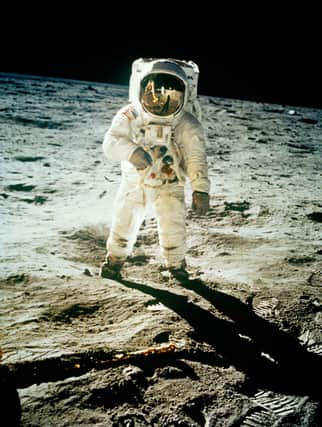Edinburgh scientists take humanity a step closer to establishing colonies on the Moon and Mars – Scotsman comment


But, after an initial burst of excitement over the so-called Space Age, we seemed to become rather bored of the repeated missions to “boldly go” where we had not been before.
However, in recent years, technological developments have allowed us to begin serious preparations to send humans not only back to the Moon but to Mars.
Advertisement
Hide AdAdvertisement
Hide AdNow Edinburgh University researchers have developed matchbox-sized “biomining reactors” capable of extracting bacteria from rocks on Mar and the Moon that could be used help make soil to grow crops for lunar and Martian colonists. The devices could also extract metals such as iron and magnesium, which would be crucial for survival in space.
Professor Charles Cockell spoke of how space biomining “could potentially support a self-sustaining human presence in space. For example, our results suggest that the construction of robotic and human-tended mines in the Oceanus Procellarum region of the Moon, which has rocks with enriched concentrations of rare earth elements, could be one fruitful direction of human scientific and economic development beyond Earth”.
If we can successfully navigate the crises of this world – like Covid, climate change and threats to democracy from despotic regimes – and maintain the right conditions for science to flourish – freedom and international co-operation – then we might just enter a new great Age of Discovery with all the opportunities such an exciting time would bring.
A message from the Editor:
Thank you for reading this article. We're more reliant on your support than ever as the shift in consumer habits brought about by coronavirus impacts our advertisers.
If you haven't already, please consider supporting our trusted, fact-checked journalism by taking out a digital subscription.
Comments
Want to join the conversation? Please or to comment on this article.